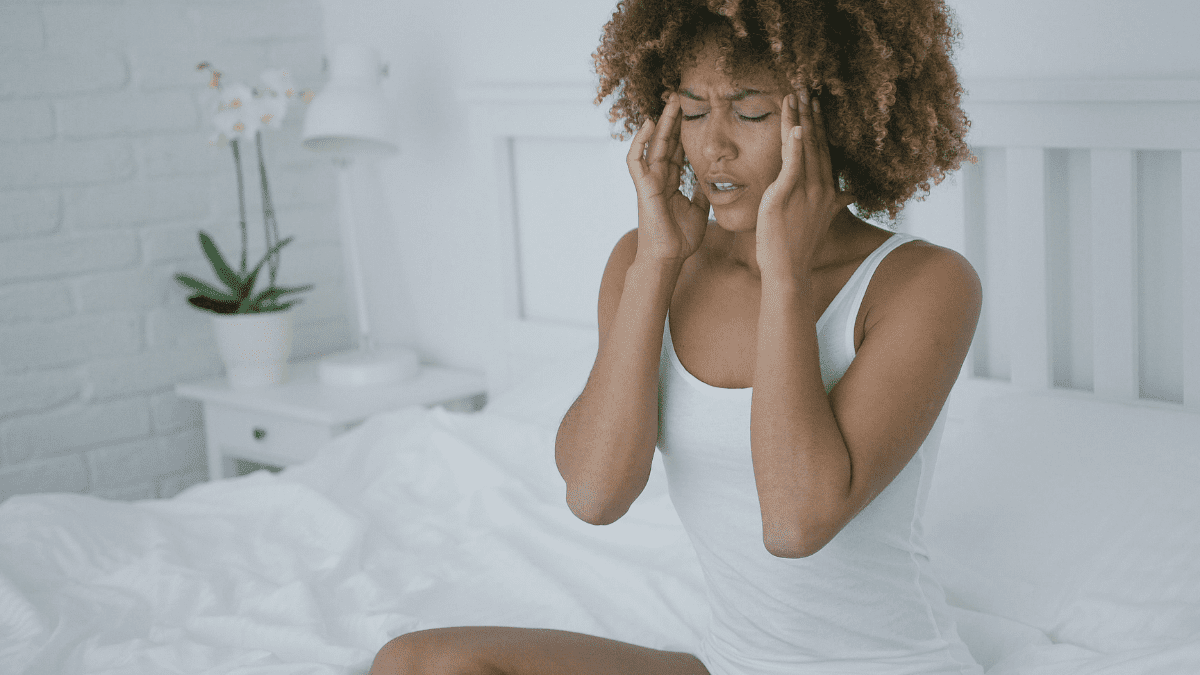
Without sleep, where would we be? The short answer is – we wouldn’t be here at all. We wouldn’t be able to function. Sleep is essential to our physical and mental health; it allows the body and mind to recharge. Making sleep and migraines a tricky thing to manage.
We spend a third of our lives sleeping – or attempting to do so. The National Sleep Foundation advises between seven and nine hours of sleep per night for adults (but who really gets this much?!). Some individuals, however, appear to need more sleep than others, and one study has found that it may be down to our genes.
Many things can disrupt our sleep, including migraines. These painful, debilitating headaches, which are often accompanied by auras – visual disturbances, dizziness and tingling sensations – can last for hours, even days. If you get migraines, sleep can sometimes feel like an impossible feat to conquer. What’s more, disturbed sleep is one of the most common migraine triggers. It’s a vicious circle. Migraine and sleep disorders go hand in hand.
We know that sleep helps migraines, but for many of us, it’s difficult to drift off in the first place. There are things you can do to improve your sleep and fend off the migraines. Hopefully, some of the suggestions outlined below will prove beneficial.
Getting a good night’s sleep: the basics
Routine: It might seem obvious, but establishing a sleep schedule and sticking to it is crucial. If you set bedtime and wake-up alarms for the same time each day, your brain and internal body clock will become accustomed to a routine. To monitor your sleep patterns, try keeping a diary or using a sleep-tracking device, such as a Fitbit Sense smartwatch or the Ōura ring.
Environment: Create a comfortable sleeping space. Ensure your bedroom is dark or dimly lit – particularly if you suffer from light sensitivity – and keep the room cool. The best temperature for sleep is approximately 18°C (65°F). It could be worth investing in a fan or air conditioning system.
Daytime habits: How you behave during the day will impact your sleep. There are important things to consider. Are you drinking enough water and eating the right foods? Have you had the right amount of daily exercise? How much caffeine have you consumed? Making the right lifestyle choices all the time is virtually impossible, but giving just one of these a try at a time could make a real impact on your sleep.
If you’re still not seeing a difference, you might want to consider a more unique, customised approach. We have listed a few options below that you can find helpful.
Relaxation exercises
There are lots of different exercises to explore, which have been proven to help you relax both your body and your mind – from restorative yoga, stretches to abdominal breathing, body scan and visualisation. You may prefer to use a meditation and mindfulness app, such as Headspace, or watch its Netflix TV series, Unwind Your Mind, an interactive experience that allows you to choose your own, personalised breathing exercise.
If you’re interested in trying out a guided relaxation for beginners, head over to our Instagram page where we have a 15-minute long video run with Alexandra Heath, clinical hypnotherapist.
Listening to music or sound effects
Slow, repetitive rhythms have been linked to feelings of safety and familiarity that can induce the brain’s sleep response. This could be anything from a smooth, low-tempo classical track to the calming nature sounds of ocean waves.
Many people enjoy falling asleep to white noise, which is produced by combining low, medium and high-frequency sounds. It has the ability to block out unwanted noise and, according to recent studies, has the potential to promote more restful sleep. You can listen to white noise sounds through Youtube, apps and white noise machines.
Blocking out blue light
You’re probably asking yourself – what is blue light? As part of the visible light spectrum, blue light can be found in natural sunlight, as well as fluorescent lights, flat-screen LED TVs, smartphones and tablet screens. While it does have its benefits – boosting your mood and alertness and helping with memory and cognitive function – it interferes with your body’s ability to prepare for sleep. How? By blocking a hormone called melatonin, which helps control your sleep cycle.
For this reason, it is recommended that you turn off your technology at least 30 minutes before sleep. However, if you can’t go without your favourite bedtime TV show or social media updates, you can try blue light-blocking glasses or filter apps.
Herbal teas
As well as being delicious, herbal teas are a great natural way to induce sleep. The warming sensation they provide is both comforting and calming, and they’re packed with goodness. Peppermint, chamomile, lemon balm and passion flower teas are all popular sleep aids, and there are also special night-time blends available. When choosing a bedtime tea, check that it doesn’t contain caffeine as this will have the opposite effect and has the potential to keep you up for hours.
Aromatherapy
Essential oils can be powerful sleep aids, helping you relax, unwind and remain at ease during the night. There are a variety of options – lavender, ginger, chamomile, eucalyptus and peppermint, to name just a few. You’ll find many of the same ingredients within night-time tea blends.
You can apply a diluted version of your chosen oil to your wrists, palms or soles of your feet at the beginning and end of the day, use a diffuser or add a few drops to your pillowcase or into your dreamy pre-bedtime bath. It’s totally up to you.
Magnesium
If you suffer from migraines, magnesium, can provide relief and help you sleep peacefully. How? In short, it helps activate neurotransmitters that are responsible for relaxing the body and the mind. Magnesium is present in many foods, including spinach, breakfast cereals, soy milk, brown rice and peanut butter, and is available as a supplement.
Migraine Patches
Are you looking for a drug-free option to soothe migraine pain? To Better Days Migraine Support Patches use a unique formula of vitamin D and supporting ingredients to help you reduce the severity of symptoms and speed up recovery time. The small, transparent patches can be applied to your temples at the onset of symptoms and kept for 8 hours, so they are perfect to keep on while you sleep. If you would like to read about what those who tried the patches say about them, visit our Trustpilot.
Looking for support and more tips about sleeping with migraines?
Migraine sleep deprivation can take its toll on your physical and mental wellbeing. Luckily, there are lots of options to explore. What are your thoughts and suggestions? You can join the conversation by heading to our Facebook community page Together For Better Days. We’d love to hear from you!




